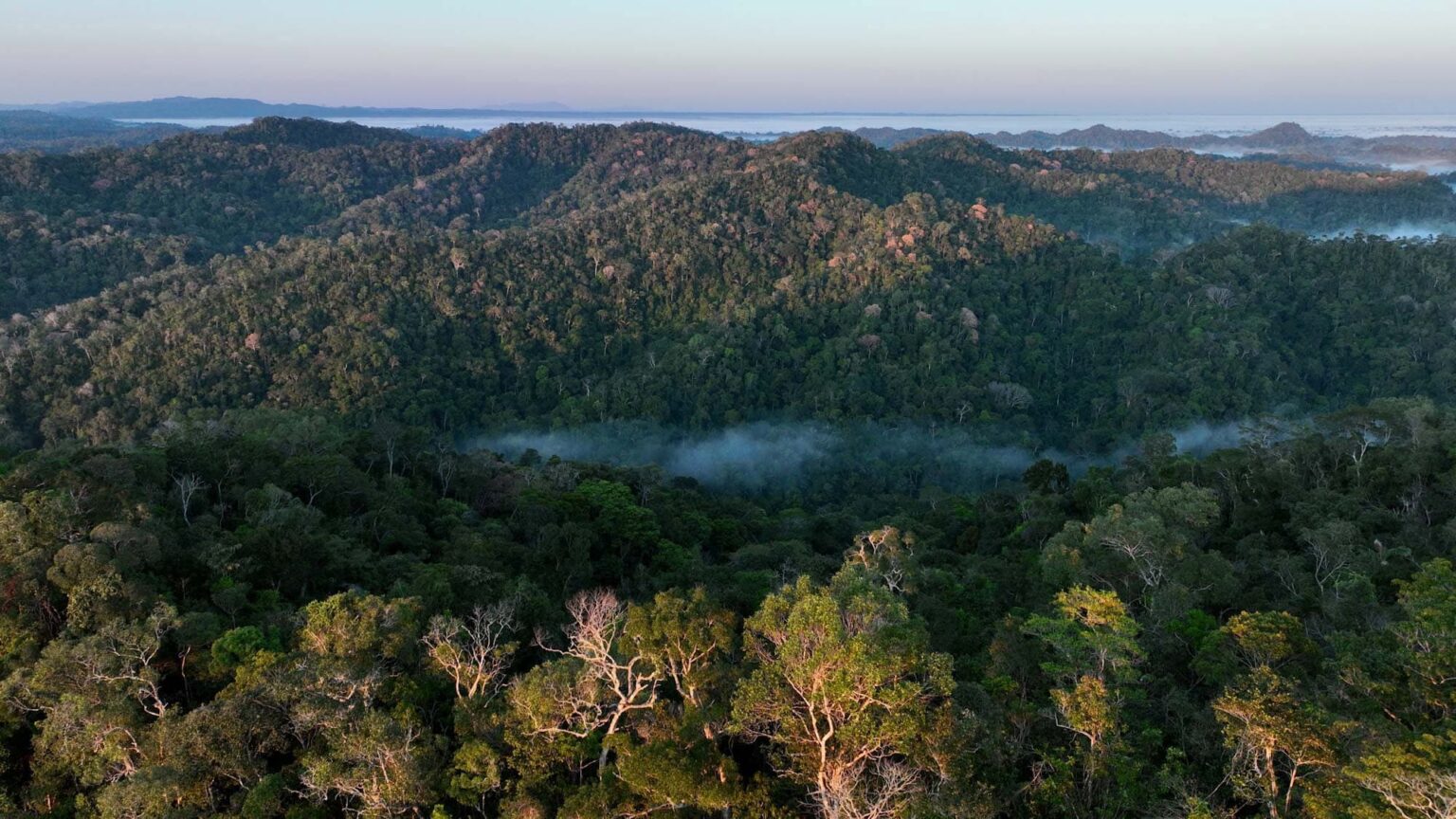On August 6, 2025, the State of Acre, Brazil signed an unprecedented agreement with Standard Chartered bank, guaranteeing up to 40 million carbon credits directly linked to the state’s jurisdictional REDD+ program to protect the Amazon rainforest. Below is a translated version of the original press release, shared courtesy of the Acre Government. (Original available here)
Unprecedented agreement in Acre boosts carbon market with focus on preservation and social inclusion
August 7, 2025
The government of Acre has just written another important page in the state’s sustainable development. A partnership between the State Finance Department (Sefaz), the Environmental Development and Services Company (CDSA S/A) and the international bank Standard Chartered is a historic milestone in Brazil, guaranteeing up to 40 million carbon credits directly linked to the protection of the Amazon rainforest. The agreement was signed on Wednesday, 6, at the Rio Branco Palace, in the capital of Acre.

The agreement will help release capital to generate economic, environmental, and social benefits for the region and communities in Acre, located in the heart of the Amazon rainforest. Photo: Diego Gurgel/Secom
The proceeds from forest asset negotiations serve as financial rewards for all those who strive for climate adaptation and mitigation, such as sustainable agriculture and livestock farming and the socioeconomic inclusion of communities benefiting from the Environmental Services Incentive System (SISA).
The agreement involves not only the bank and the state government, but also indigenous, extractive, and riverine communities, which are set to receive 72% of the total resources generated by the negotiations.
In practice, the state of Acre is strengthening its commitment to keeping its forests standing through innovative commercial strategies with its new partner, whose business arrangements will have a strong presence in the national and international financial markets.
Carbon with a purpose
Acre is a pioneer in the forest carbon market, accounting for the first Jurisdictional REDD+ project implemented in Brazil. The resources being prospected involve forest assets, especially forest carbon, based on their verification and certification, with technical work underway to generate better profit margins from the assets in the near future, in compliance with the law.
The technical work will be listed through the JREDD+ Transaction Architecture (ART) registry, using its verified Trees methodology, approved by the Integrity Council for the Voluntary Carbon Market (ICVCM), for use under the Carbon Offsetting and Reduction Scheme for International Aviation (Corsia). This is the first time that a major international bank has entered into such a partnership with a subnational government or state entity.
For Governor Gladson Camelí, the agreement represents not only an economic achievement, but a reaffirmation of the commitment to sustainable development and to the standing forest.
“Acre has been an international benchmark in environmental policies that reconcile conservation with income generation. We are one of the few states that can show, in practice, that it is possible to protect the forest and at the same time create opportunities for our people. This agreement recognizes the fundamental role of traditional communities, indigenous peoples, and rubber tappers, who have lived in harmony with nature for centuries. It is thanks to them that we have one of the lowest rates of deforestation on indigenous lands—less than 1%. This is proof that conservation is not only possible, it is cultural, it is part of our identity,“ he emphasizes.
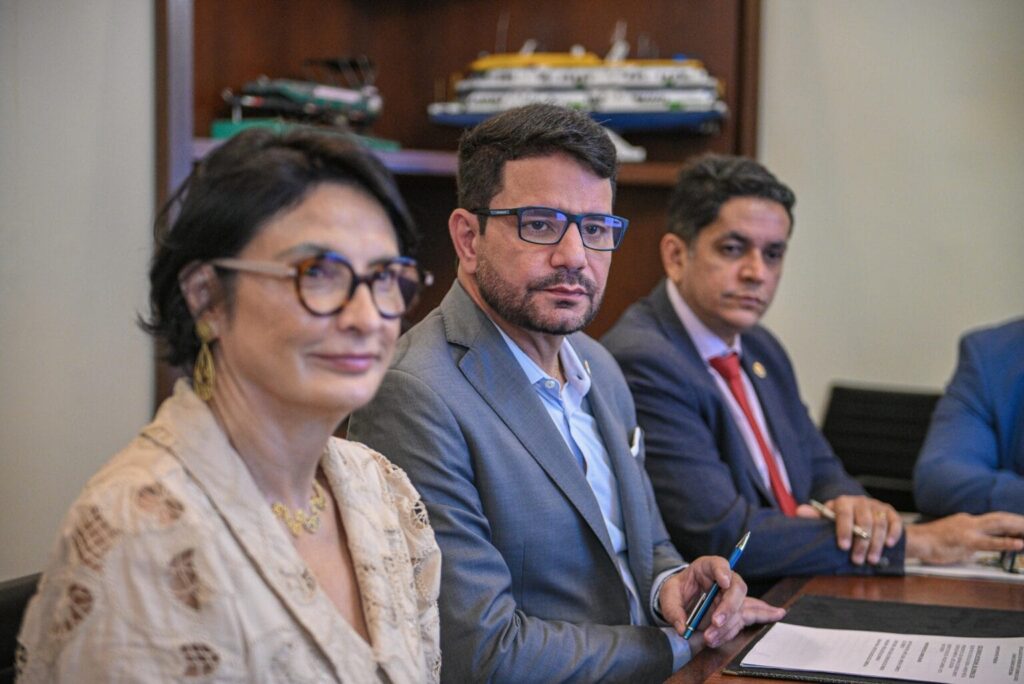
”We are showing the world that the future of the Amazon lies here. Acre is ready to lead. Let us come together, with courage and a great sense of responsibility, to honor this agreement in concrete hope for future generations,” says Camelí. Photo: Diego Gurgel/Secom
According to the governor, the funds should strengthen the local economy, generate ecosystem jobs, support community projects, and ensure that Acre continues to be an example for other countries seeking real solutions to the climate crisis: “We are showing the world that the future of the Amazon lies here. And that this future will be built with respect, social justice, and with the forest standing. Acre is ready to lead. And together, with courage and responsibility, we will transform this agreement into concrete hope for future generations.”
How will it work?
The agreement will help unlock capital to generate economic, environmental, and social benefits for the region and communities of Acre, located in the heart of the Amazon rainforest. According to Acre state law, the proceeds from the sale will be allocated as follows:
- 72% of the total funds will be allocated to indigenous communities, extractive communities, and family farming. This capital will be used for activities such as sustainable and low-emission livestock farming, reforestation of secondary forests, creation of clearings without deforestation, sustainable community tourism, and emergency responses to extreme weather events;
- 28% will be used to finance project management and governance. This includes effective forest management and monitoring and verification of adherence to the Trees standard.
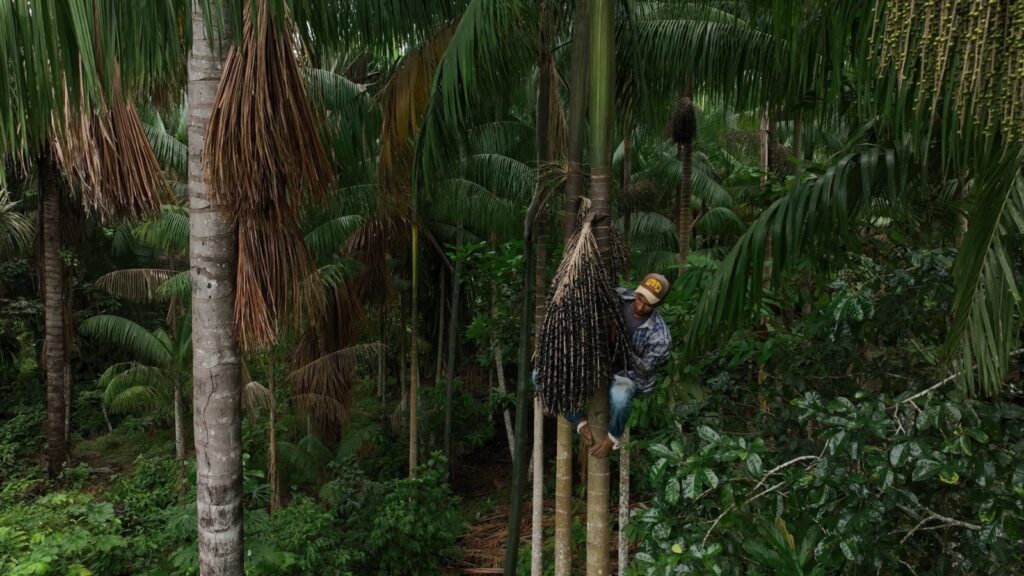
In addition to the standing forest, the agreement also aims to support forest peoples such as indigenous, extractive, and riverine communities. Photo: Pedro Devani/Secom
At the appropriate time, in conjunction with the State of Acre. This approach establishes an innovative and scalable model for financial efficiency in climate policy in the jurisdiction, combating deforestation, reducing emissions, preserving the forest, and promoting economic growth through natural solutions and production chains adapted to climate change.
Develop without deforestation
The economic impact of this agreement establishes a solid bridge between development and environmental preservation, establishing Acre as an inspiring model for the world, as emphasized by the Secretary of Finance, Amarísio Freitas, speaker and leader of the State’s Jurisdictional Carbon Project: “The government has been fighting for a fair society, offering solutions for all its inhabitants, creating development mechanisms in the regions furthest from the capital without negatively impacting the ecosystem. This agreement provides us with an effective tool in the fight for sustainable economic development. We are excited to work with Standard Chartered on this pioneering innovation.”
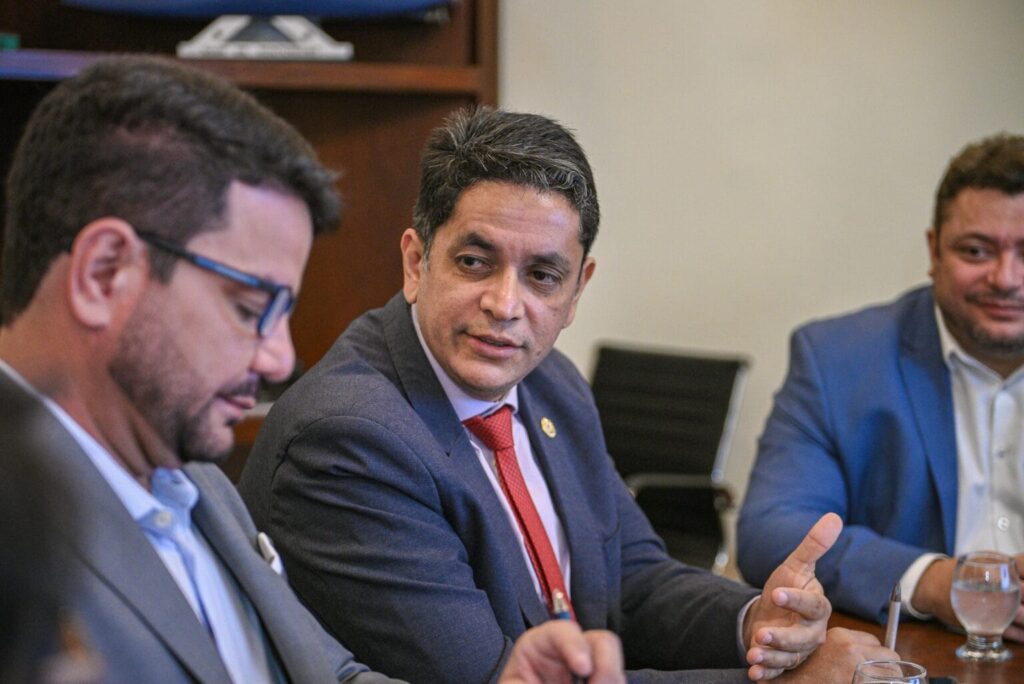
“This agreement provides us with an effective tool in the fight for sustainable economic development. We are excited to work with Standard Chartered on this pioneering innovation,” said Amarísio Freitas. Photo: Diego Gurgel/Secom
The program builds on more than a decade of stakeholder engagement and participatory forest governance in the state of Acre and aligns directly with the COP30 presidency’s goals of accelerating climate finance for forests and developing economies.
Standard Chartered’s CEO and Head of Financial Institutions for Latin America, Germana Cruz, says that the state is moving forward as a bold leader in the REDD+ jurisdictional system and, specifically, in the carbon market, combining environmental ambition with economic opportunity.
“Standard Chartered is proud to support this vision by bringing our global expertise in sustainable finance to help build reliable carbon market solutions, as well as other possible forest assets, that are scalable for our markets,” she says.
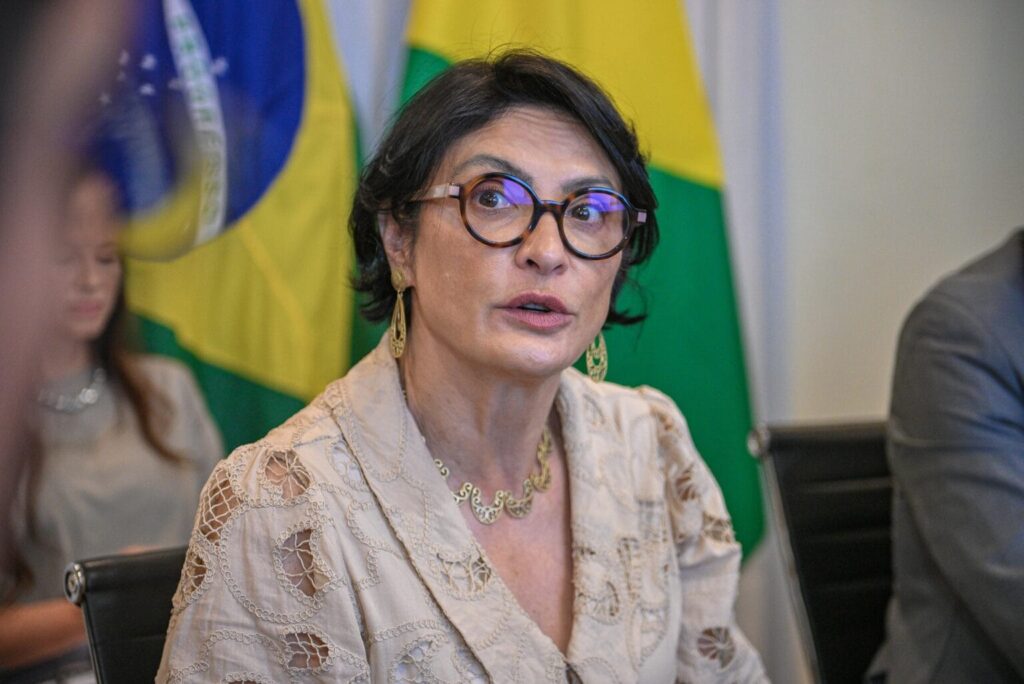
“Acre is demonstrating leadership by combining environmental ambition with concrete economic opportunities,” Germana emphasized in a meeting with the Acre government. Photo: Diego Gurgel/Secom
CDSA S/A
The Environmental Services Incentive System (Sisa), established by State Law No. 2,308/2010, is a pioneering milestone in climate and environmental governance in Brazil, integrating public policies and remuneration mechanisms for ecosystem services, such as forest conservation and traditional sustainable practices. In addition to operationalizing payments for results (REDD+), Sisa ensures socio-environmental safeguards and transparency through monitoring, reporting, and verification (MRV) systems. The same law created the Acre Environmental Services Development Company (CDSA), responsible for implementing, managing, and commercializing jurisdictional environmental assets with a focus on innovation, climate integrity, legal certainty, and low-emission sustainable development.
The commitment between the institutions aims to ensure greater sustainability and protect the forest.
Standard Chartered Bank
A leading international banking group with a presence in 53 of the world’s most dynamic markets, Standard Chartered’s purpose is to drive commerce and prosperity through diversity, with a heritage and values expressed in its brand promise: “Here for good.” Standard Chartered PLC is listed on the London and Hong Kong stock exchanges.

